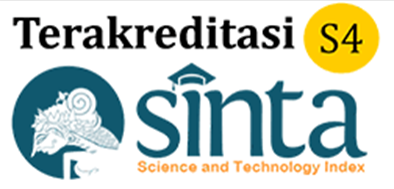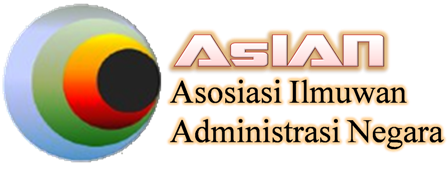Manajemen dan Praktik Inklusif Pendidikan Tinggi bagi Penyandang Disabilitas: Studi Kasus di Dua Universitas Kalimantan Timur
Abstract
Inclusive access to higher education for persons with disabilities in Indonesia remains limited, as indicated by data from the National Disability Committee (2022) showing that only 2.8% of persons with disabilities continue to higher education. This study addresses the issue of weak inclusive governance in universities by examining two institutions in East Kalimantan-one public and one private-selected to compare managerial practices. Using a descriptive qualitative approach, data were collected through in-depth interviews with university leaders, lecturers, administrative staff, and students with disabilities, as well as through campus facility observations and policy document reviews. Thematic analysis was applied to identify key patterns. The findings reveal that inclusive practices remain partial and highly dependent on individual initiatives. For instance, Campus A has established a Disability Service Center, but its authority is limited, while Campus B lacks a formal structure and relies on ad-hoc solutions. Major challenges include the absence of standardized service guidelines, insufficient budget allocation, and weak monitoring systems. This study recommends the establishment of dedicated disability service units with clear authority, special budget allocation, and participatory monitoring mechanisms to ensure the sustainability of inclusive education in higher education institutions.
References
Afifah, M. H. (2023). Interaksi Komunikasi Antara Mahasiswa Non Disabilitas Dengan Mahasiswa Disabilitas Di Universitas Teknologi Sumbawa. Jurnal Indonesia Sosial Teknologi, 4(7), 832–843. https://doi.org/10.59141/jist.v4i7.645
Amnesti, S. K. W., Jundiani, J., Zulaichah, S., Noh, M. S. M., & Fitriyah, L. (2023). Higher Education with Disabilities Policy: Ensuring Equality Inclusive Education in Indonesia, Singapore and United States. Journal of Human Rights, Culture and Legal System. https://doi.org/10.53955/jhcls.v3i3.135
Booth, Tony., & Ainscow, Mel. (2011). Index for inclusion : developing learning and participation in schools. Centre for Studies on Inclusive Education.
Burke, P. J., Bennett, A., Burgess, C., Gray, K., & Southgate, E. (2016). Capability, Belonging and Equity in Higher Education: Developing inclusive approaches.
Cifuentes‐Faura, J., & Faura-Martínez, Ú. (2022). Mapping of Technological and Support Resources for the Inclusion of Students with Disabilities in Higher Education Institutions. International Journal of Disability, Development and Education, 71, 287–298. https://api.semanticscholar.org/CorpusID:250123092
Filippou, K., Acquah, E., & Bengs, A. (2025). Inclusive policies and practices in higher education: A systematic literature review. Review of Education. https://doi.org/10.1002/rev3.70034
Jaegler, A. (2022). How to Measure Inclusion in Higher Education: An Inclusive Rating. Sustainability (Switzerland), 14(14). https://doi.org/10.3390/su14148278
Kemendikbudristek. (2021). Laporan Kinerja Kemendikbudristek.
Komite Nasional Disabilitas. (2022).
Korthals Altes, T., Willemse, M., Goei, S. L., & Ehren, M. (2024). Higher education teachers’ understandings of and challenges for inclusion and inclusive learning environments: A systematic literature review. Educational Research Review, 43, 100605. https://doi.org/https://doi.org/10.1016/j.edurev.2024.100605
Lantsova, I., Georgiy, K., Shcherbatykh, L., Gladysheva, M., Grebennikova, V., Morán, P., Kosov, M., Singer, N., Muda, I., & Dudnik, O. (2024). New Model of Inclusive Higher Education Practices in Megacities’ Universities. Emerging Science Journal. https://doi.org/10.28991/esj-2024-sied1-03
Mbua, E. M. (2023). Principal Leadership: Raising the Achievement of All Learners in Inclusive Education. www.ajpojournals.org
Permendikbud No 46 Tahun 2014 (2014).
Quayson, F. (2019). The Importance of Inclusive Leadership Practice In Higher Education Administration. The Interdisciplinary Journal of Advances in Research in Education, 2(1), 1–9. https://doi.org/10.55138/sq104284qua
Undang-Undang Nomor 8 Tahun 2016 (2016).
Undang-Undang Nomor 19 Tahun 2011 (2011).
UNESCO. (2020). Towards Inclusion in Education: Status, Trends and Challenges – The UNESCO Salamanca Statement 25 Years On. United Nations Educational, Scientific and Cultural Organization.
World Health Organization & World Bank. (2011). World Report on Disability.
Copyright (c) 2025 Jurnal Manajemen dan Ilmu Administrasi Publik (JMIAP)

This work is licensed under a Creative Commons Attribution 4.0 International License.












